THE TROJAN WOMEN
by Caroline Bird
Crescent Theater, Yale College
March 27-29, 2014
United States Premiere
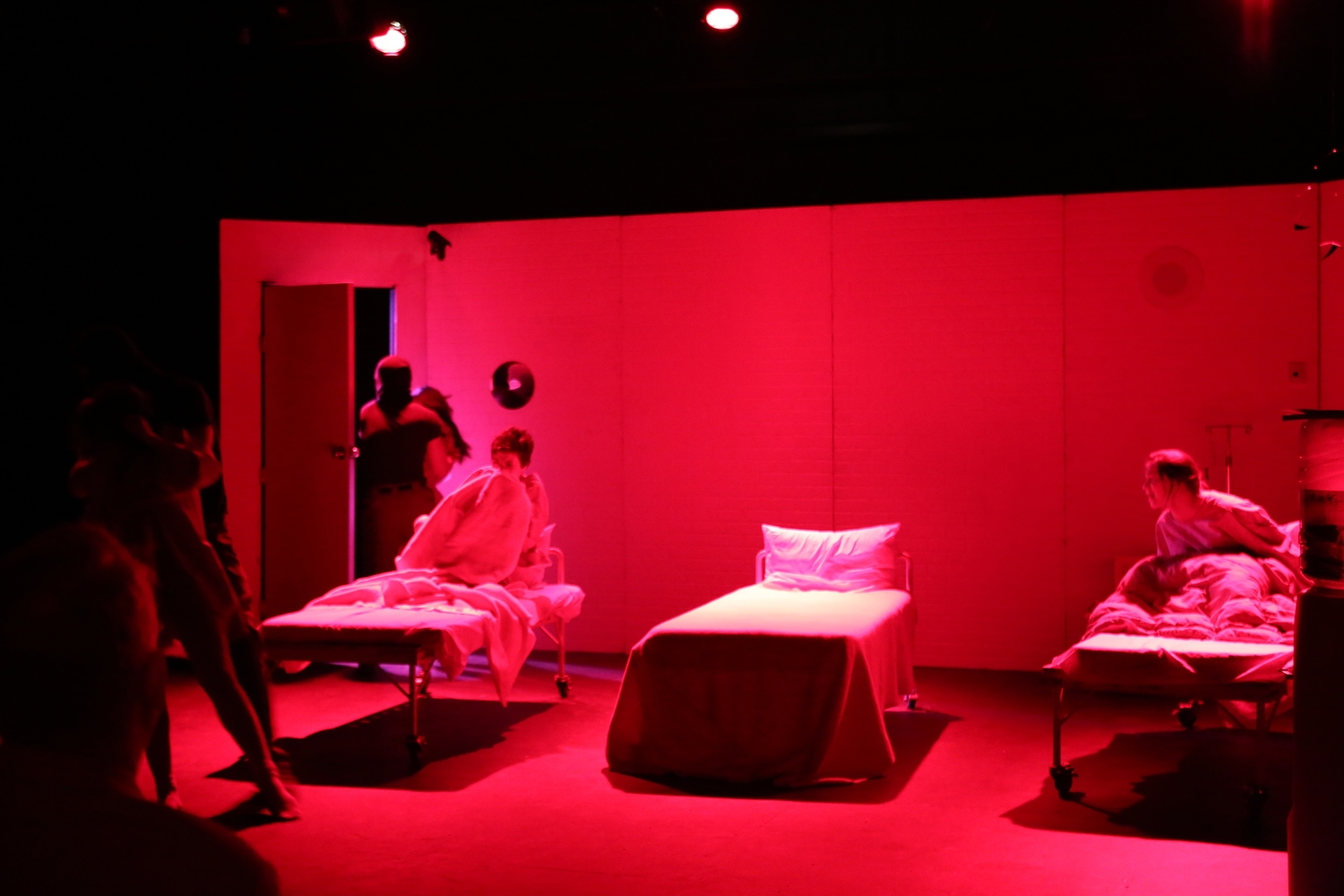
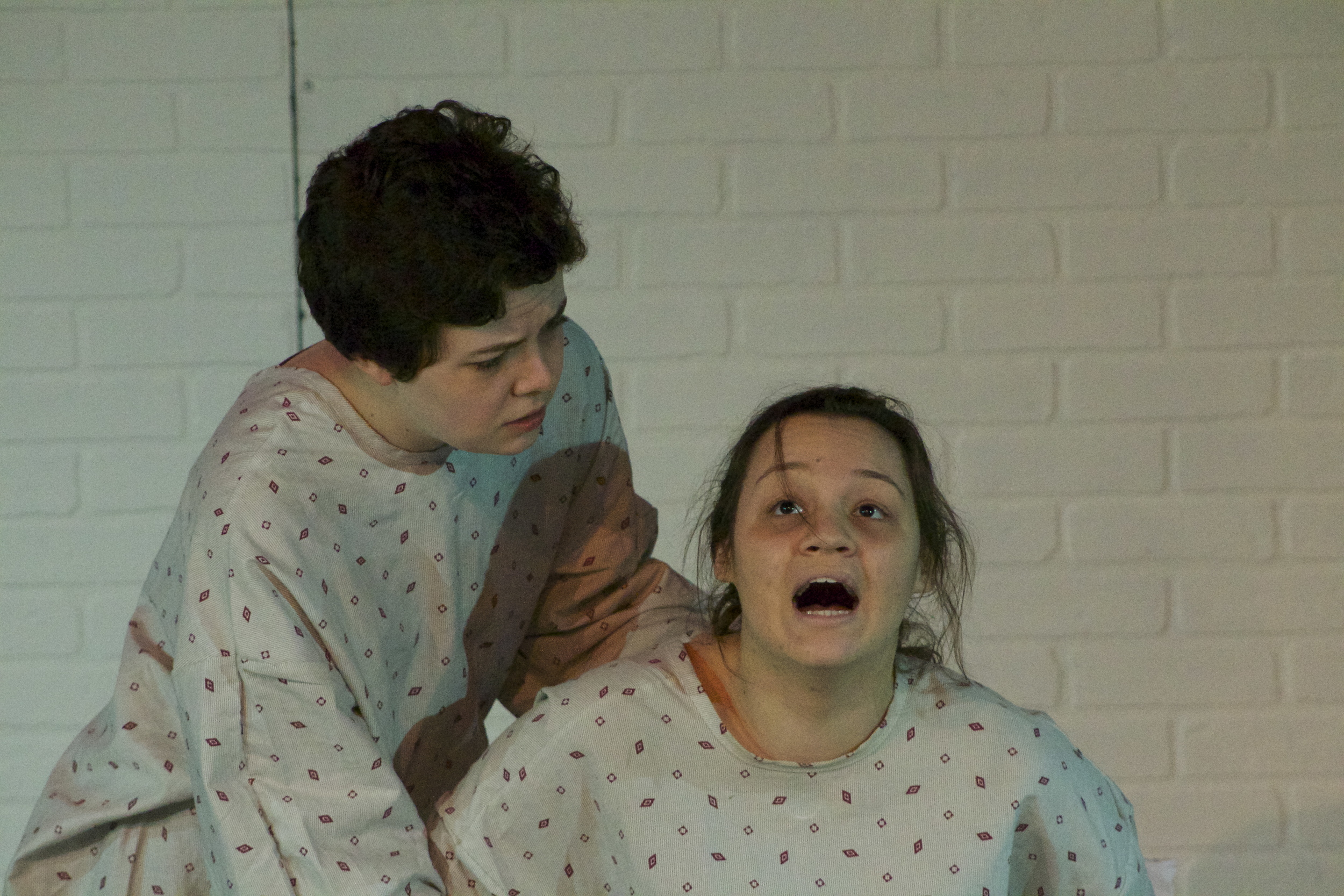
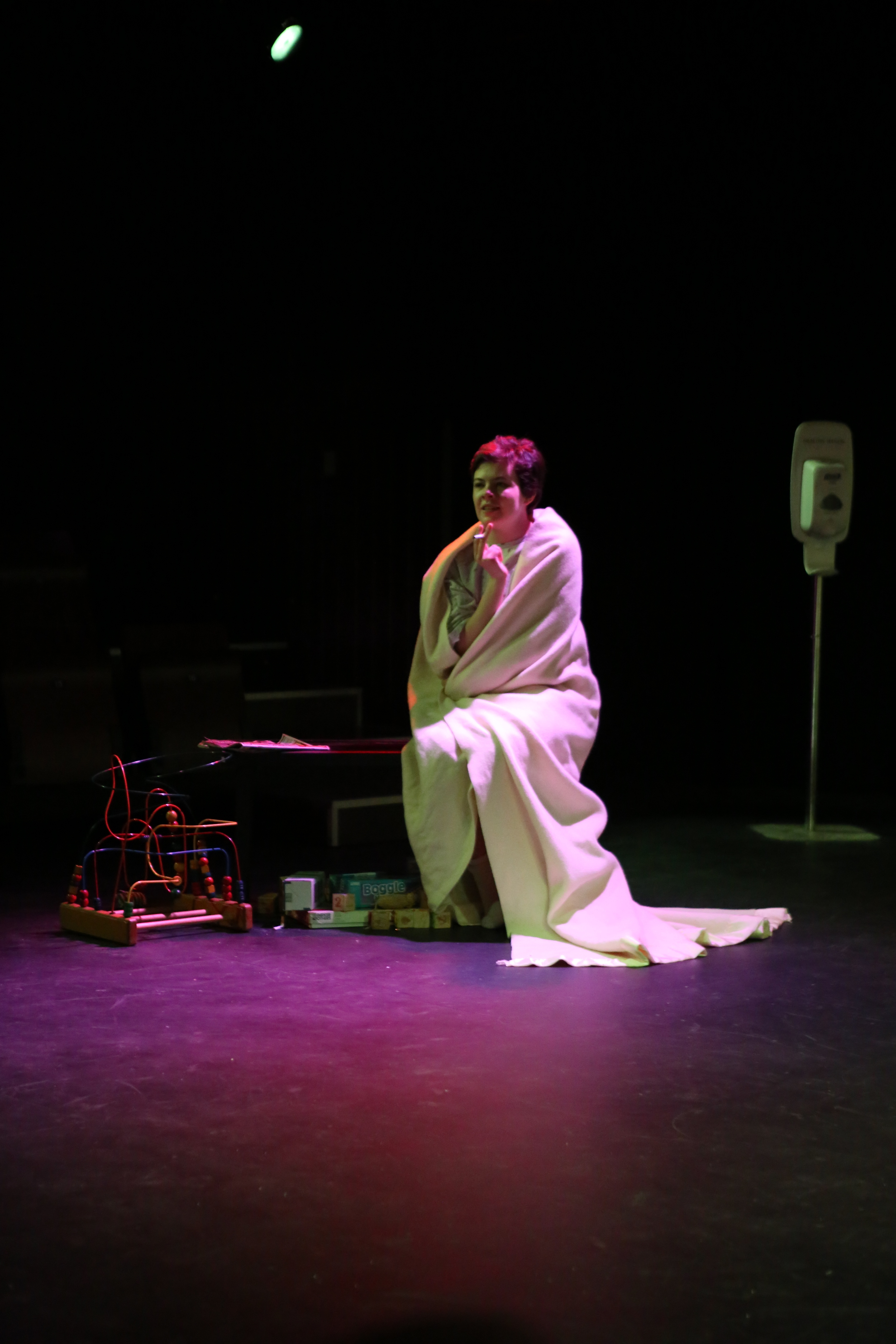
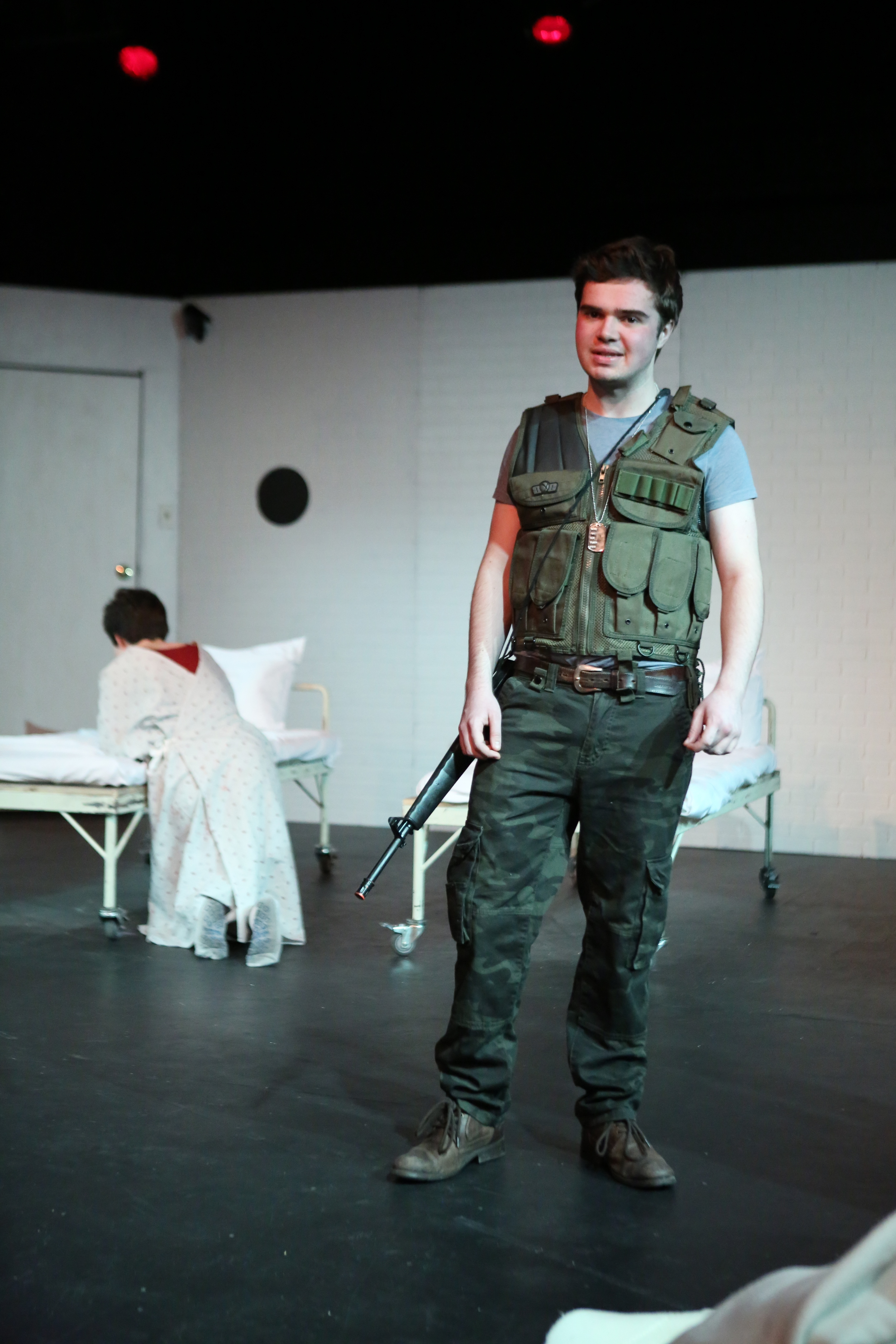

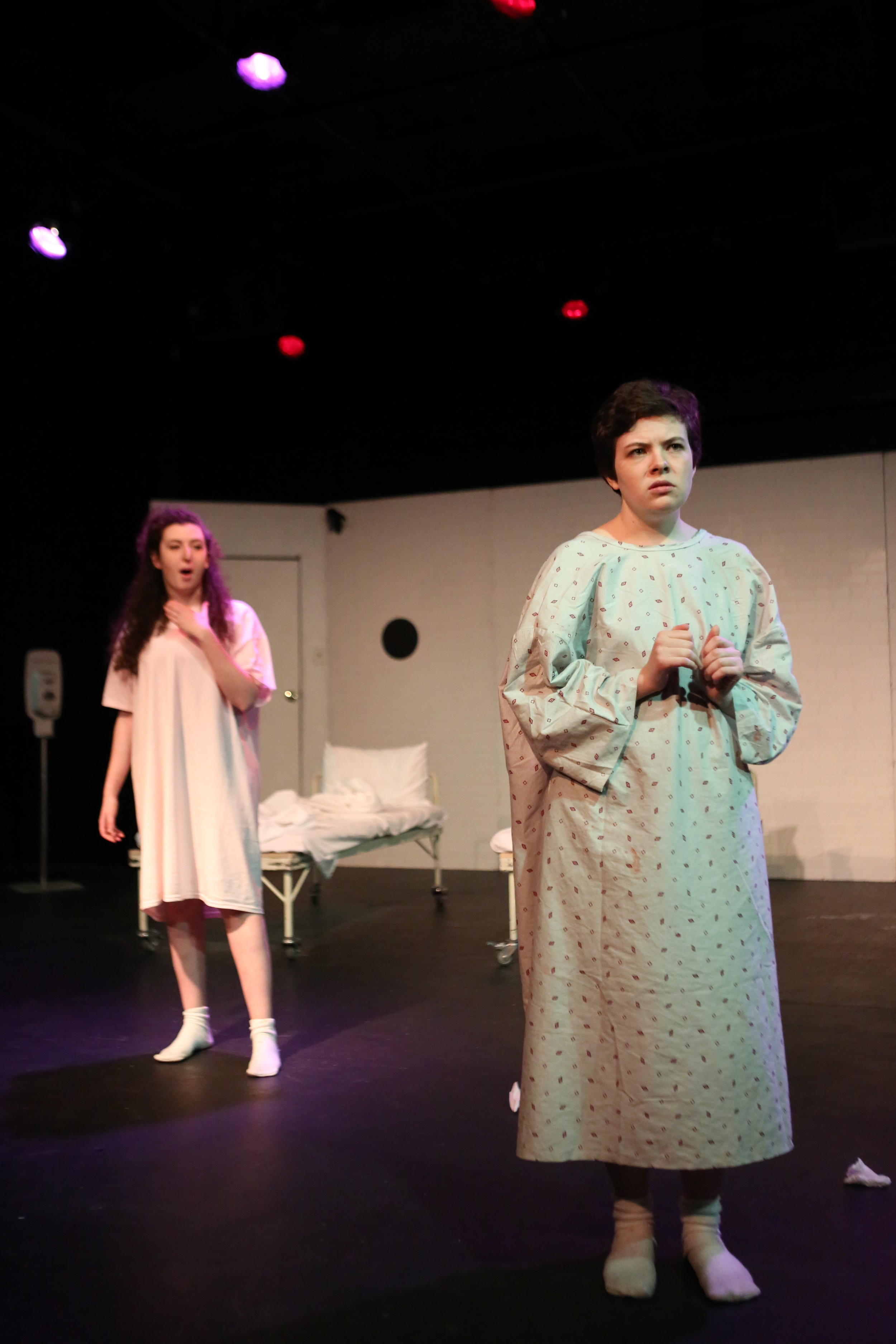
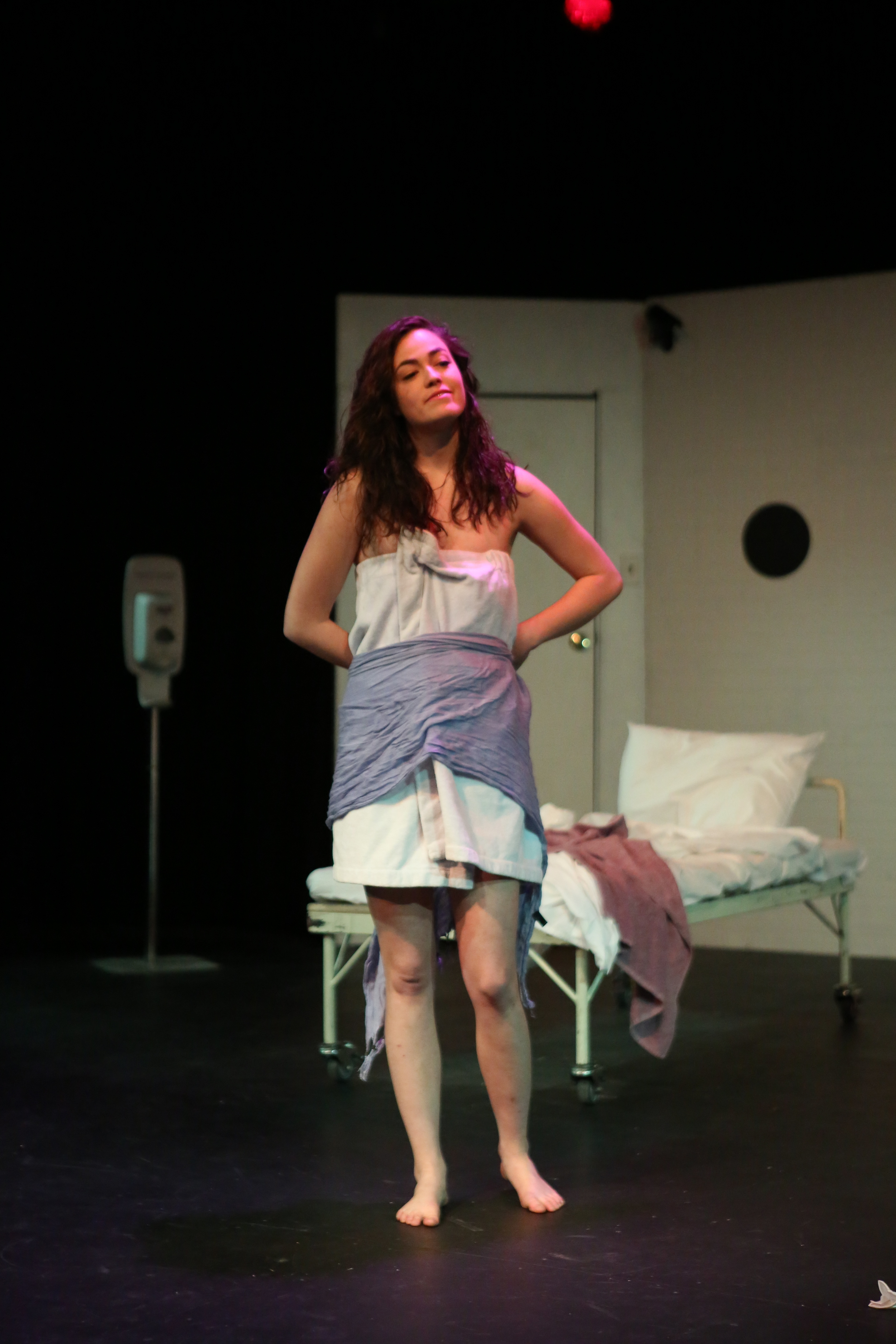


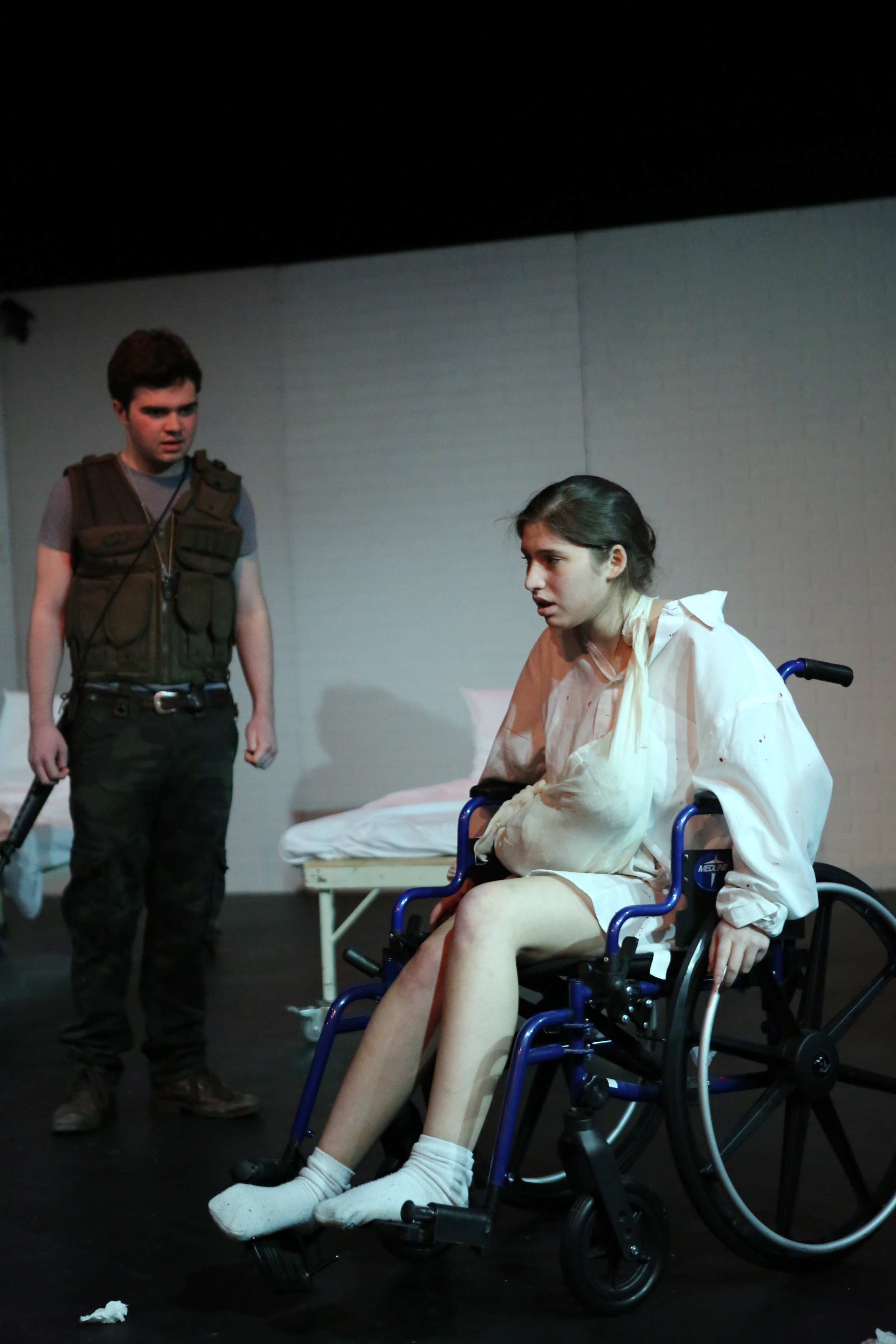
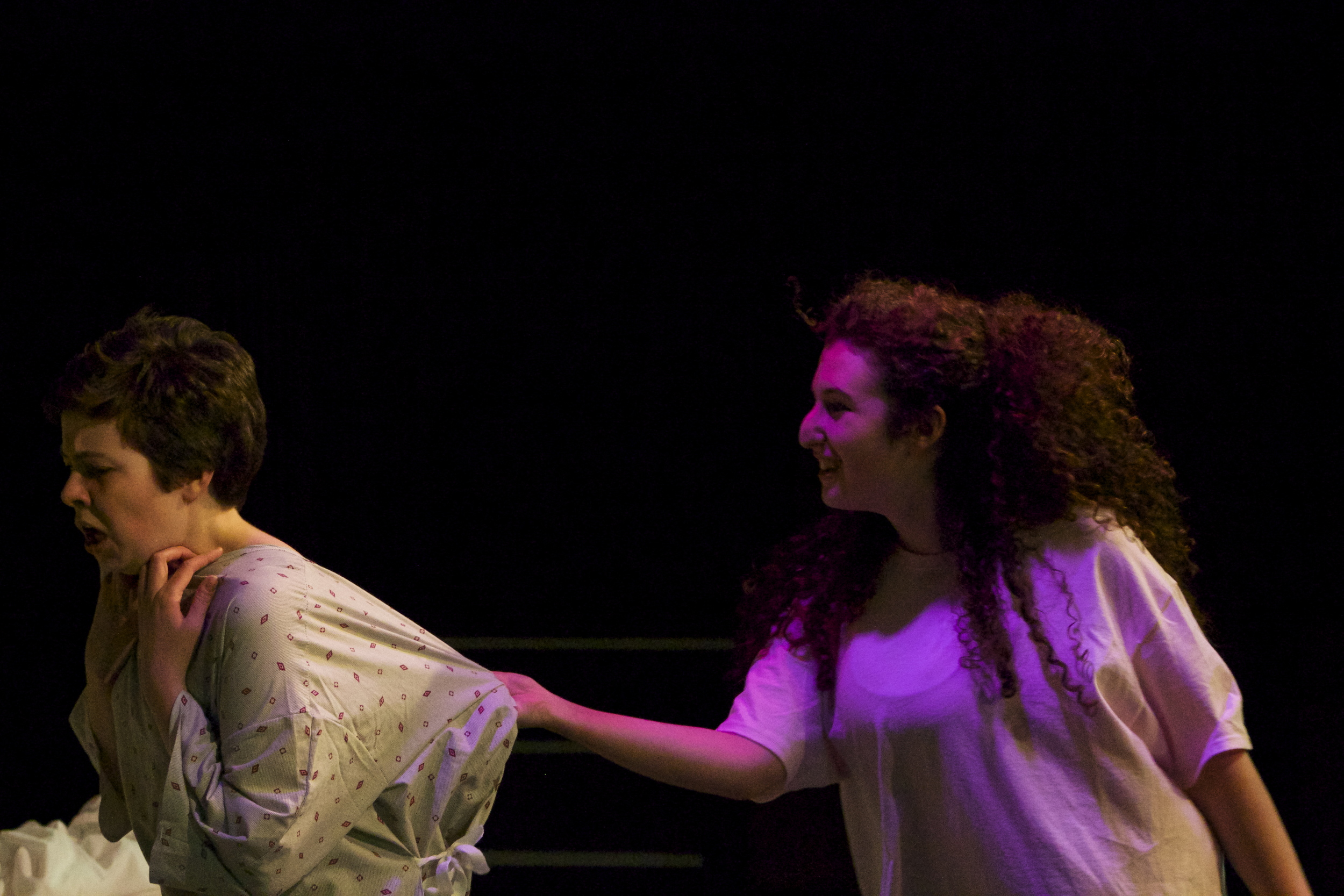
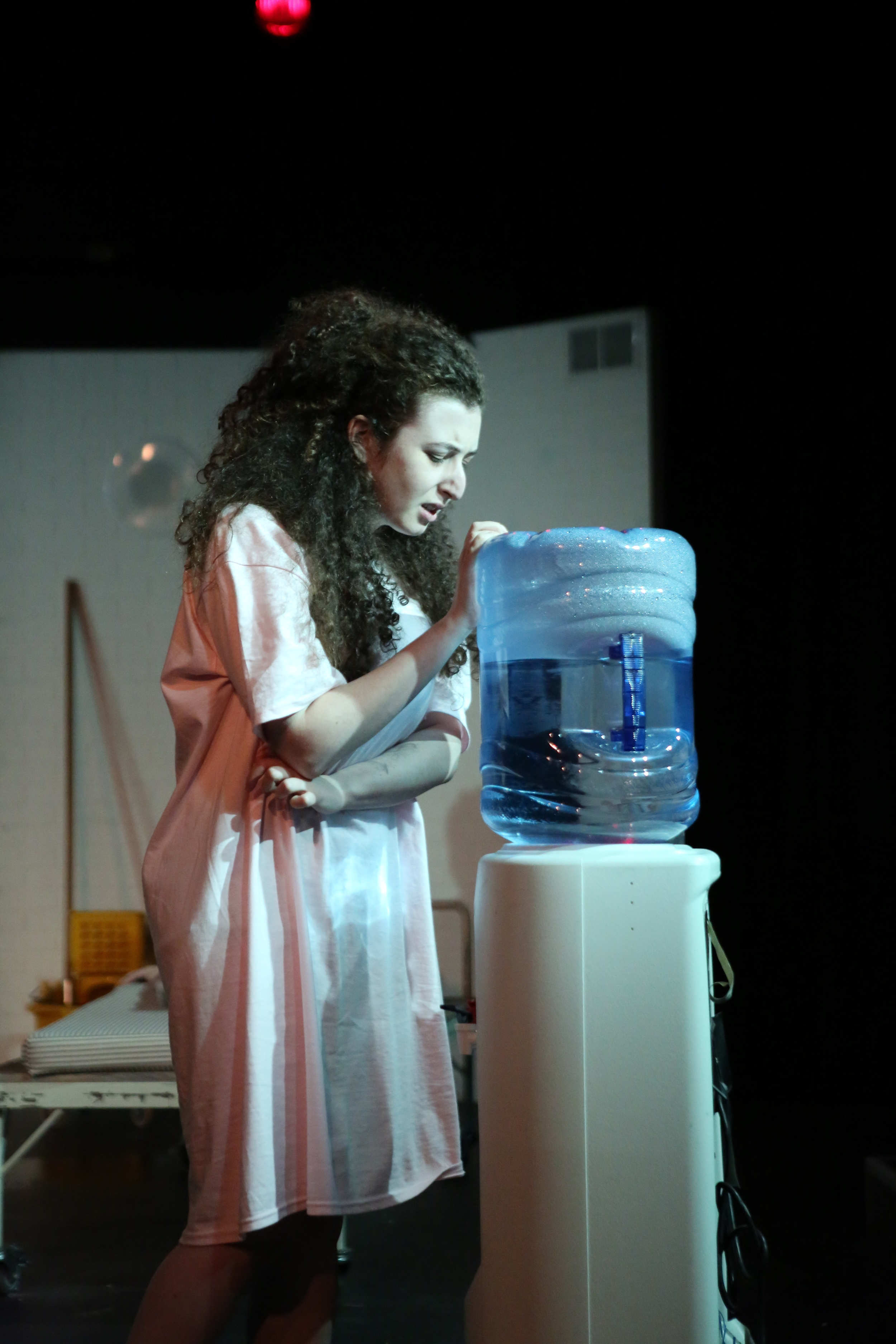

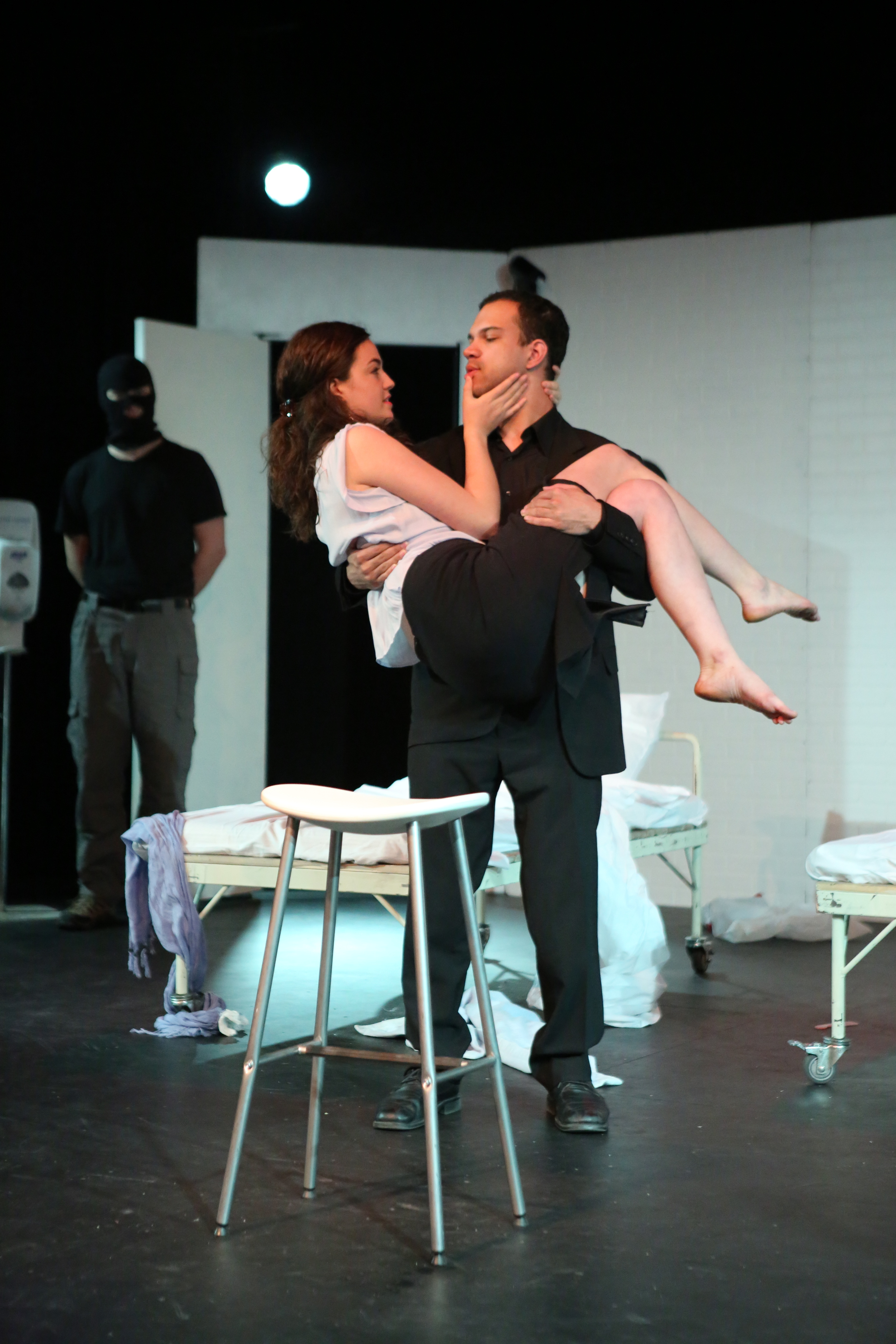

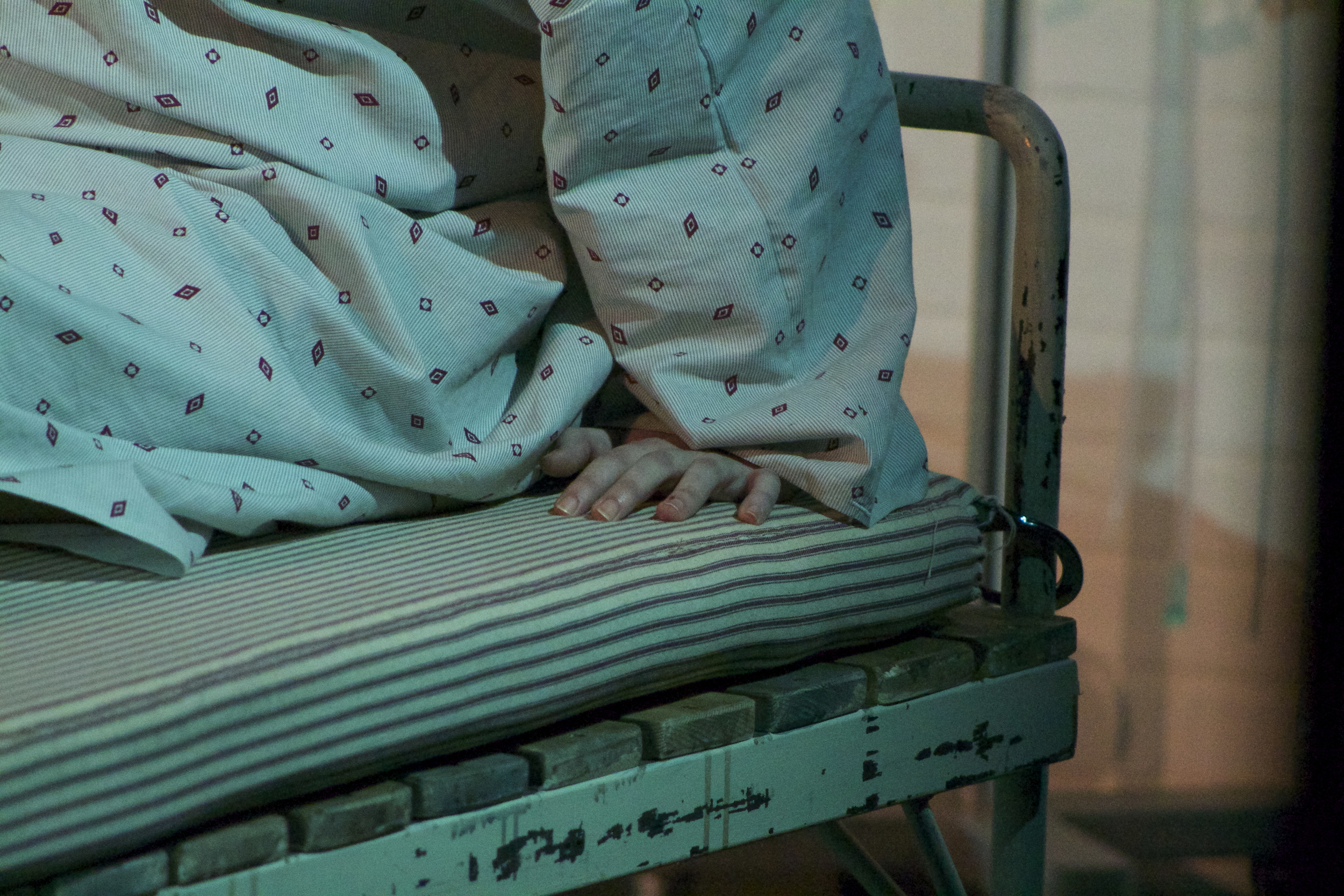

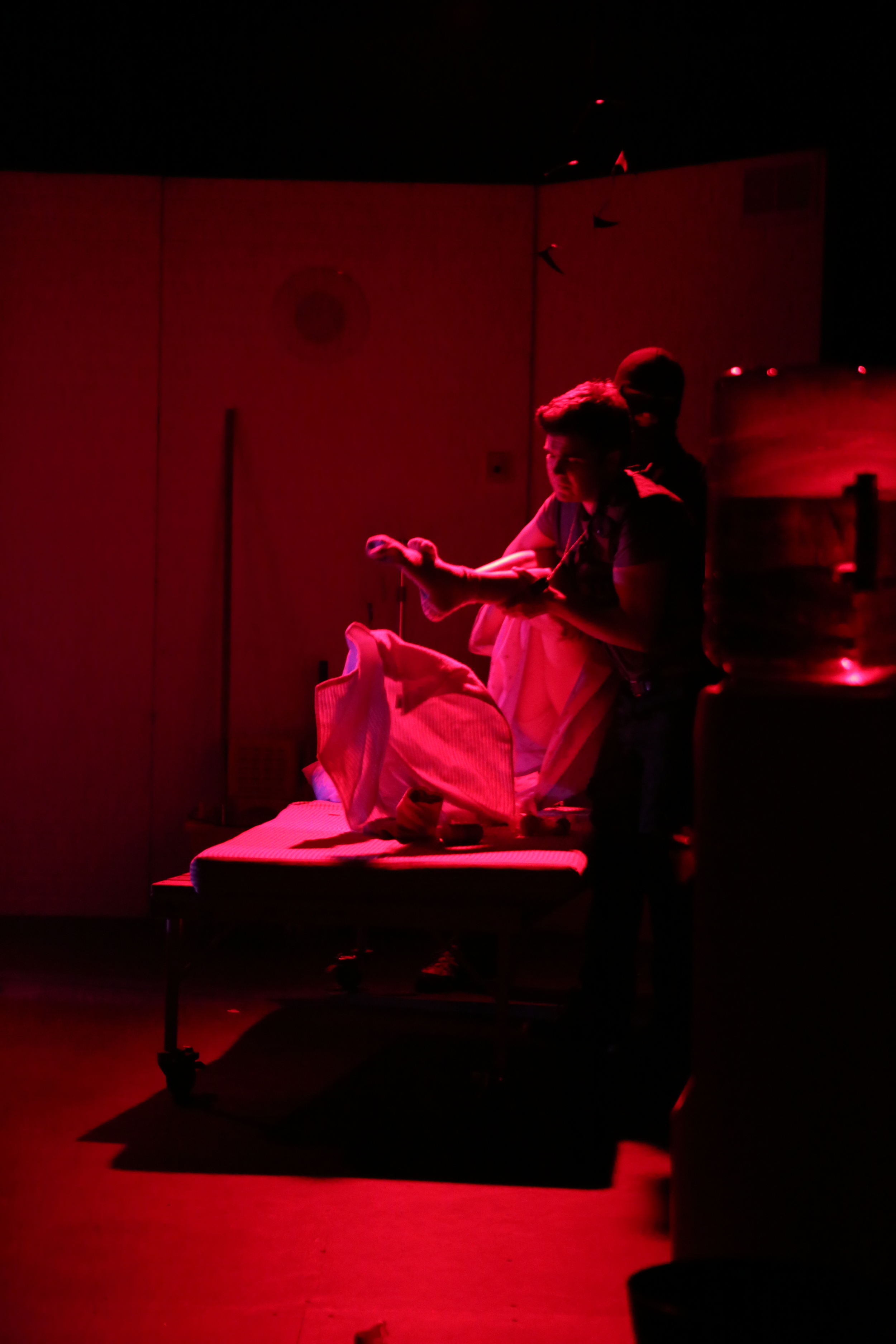
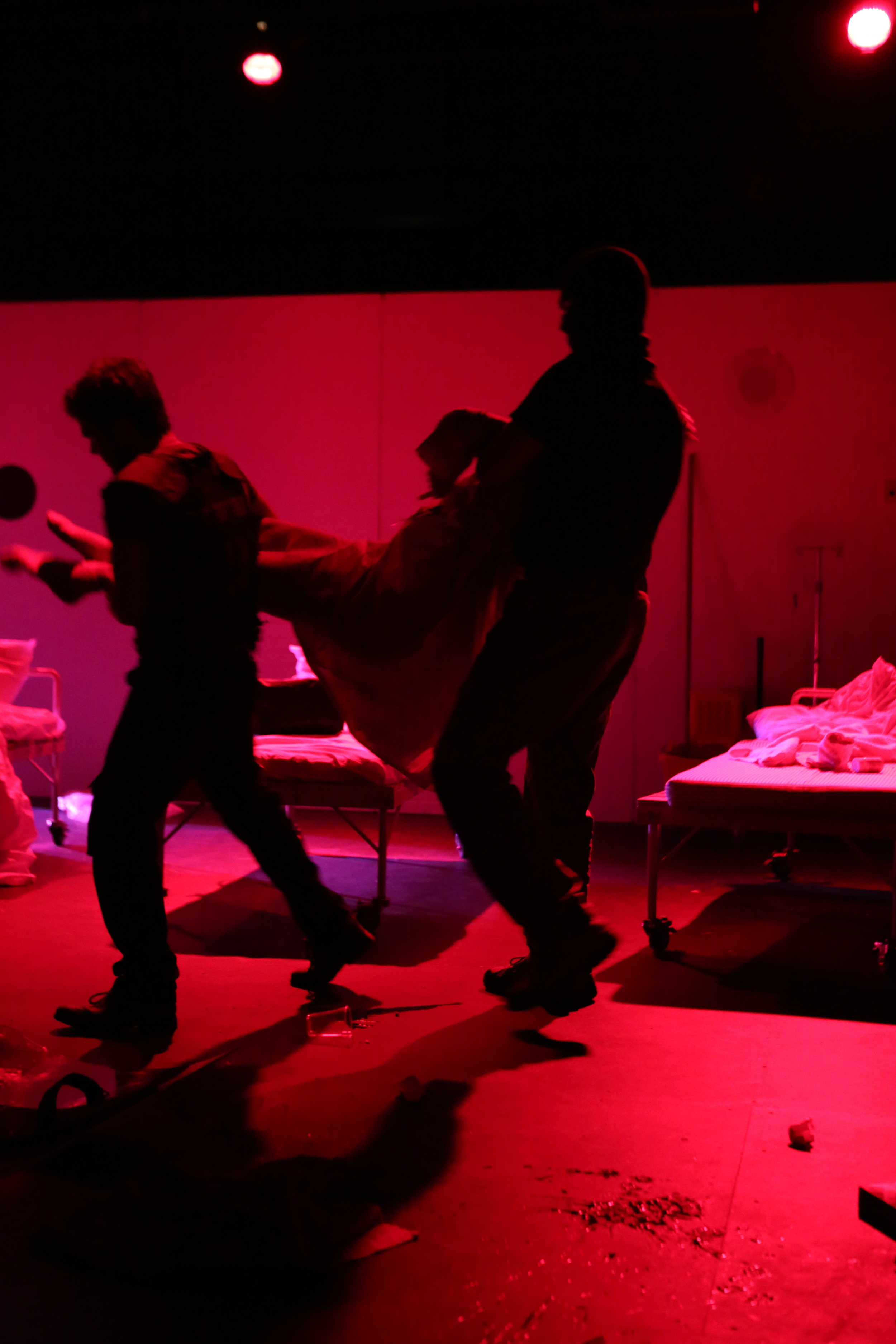
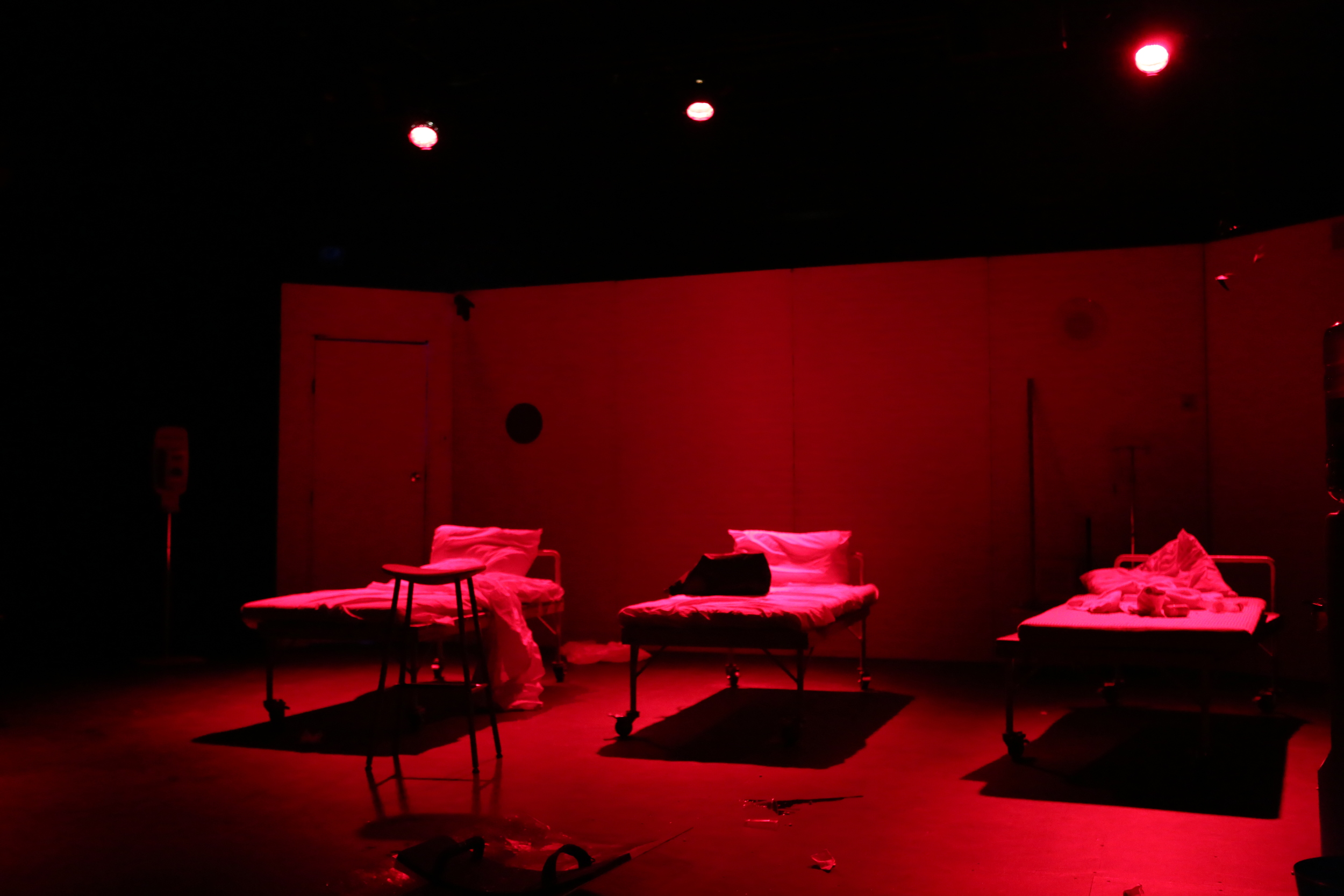
ENSEMBLE
Chamonix Adams Porter (Hecuba)
Ellie Boswell (Helen)
Jill Carrera (The Chorus)
Billy Cavell (Talthybius)
Carol Crouch (Athena)
Lizzy Emanuel (Andromache)
Sam Levatich (Poseidon, Greek Guard)
Crystal Liu (Trojan Mother, Greek Guard)
Anya Markowitz (Cassandra)
Carter Michael (Menelaus)
Natalie Rose Schwartz (Trojan Daughter, Greek Guard)
CREATIVE TEAM
directed by Noam Shapiro
produced by Katie Stoops
stage managed by Erin Ryan
dramaturgy by Eve Houghton
set design by Claire Williamson
lighting design by Irina Gavrilova
sound design by Janine Chow
costume design by Luz Lopez
projection design by Travis Gonzalez
assistant directed by Stephanie Addenbrooke and Elaine Zhang
assistant produced by Michaela Johnson
assistant stage managed by Hannah Worscheh
photography by Stephanie Addenbrooke
THE TROJAN WOMEN
Synopsis:
The Trojan War is over. Beyond the prison walls, Troy and its people burn. Inside the prison, the city’s captive women await their fate. Stalking the antiseptic confines of its mother and baby unit is Hecuba, the fallen Trojan Queen. Alongside her, Andromache, Cassandra, and Helen grapple with their pasts and futures. But their grief at what has passed will soon be drowned out by the horror of what is to come, as the Greek lust for vengeance consumes everything—man, woman, and child—in its path. Raising questions about power, sexuality, and violence against women during wartime, Caroline Bird’s modern language adaptation of this Greek tragedy reveals that Euripides’s themes and characters are as contemporary as ever.
Troy is Burning. Still.
Dramaturgical note by Eve Houghton
"The Trojan War is over. Beyond the prison walls, Troy and its people burn. Inside the prison, the city's captive women await their fate."
Euripides' The Trojan Women was first performed in 415 BCE during the Peloponnesian War. The text for our production came from a 2012 adaptation of Euripides' play by the British poet and playwright Caroline Bird. Despite modernizing the play's language, Bird's adaptation remains faithful to the structure and content of the original play. Set in the mother and baby unit of a women’s prison, Bird's adaptation is a visceral and frighteningly relevant adaptation. “Every time I watch them, I learn something new,” the goddess Athena taunts: “Their little inventions: smart phones, crossword puzzles...” The play is all the more disconcerting when it provokes the realization that modern technology cannot allay the ancient, yet persistent, horrors of wartime suffering—and indeed often facilitates trauma.
"Violence," proclaims the doomed seer Cassandra, "is a thing that starts in your head." It is primal and instinctive, both for the imprisoned women of the fallen city and their captors. Hecuba, Cassandra, Andromache, Helen, and the women of Troy do not always find solidarity in shared adversity; instead, they frequently turn to emotional and physical violence against each other. And yet, the play also presents images of hope and resilience, as the women allot blame, plot revenge, and struggle to articulate a new conception of themselves among the rubble of their city. “Our men are all dead,” observes the Chorus, “So who do we belong to?”
In the 21st century, the epidemic of sexual violence in war zones, prisons, and neighborhoods around the world is as relevant as it was for audiences in Athens over 2,000 years ago. A recent survey showed that nearly 200,000 juvenile offenders suffer sexual assault in US prisons every year, and pregnant women and transgender inmates, especially those of color, are particularly vulnerable to abuse. The use of rape as a weapon of war impacts the lives of hundreds of thousands of people of all genders in conflict areas across the world. As both an ancient and strikingly modern play, The Trojan Women is uniquely equipped to engage in this dialogue. Troy is Burning. Still.
The Trojan Women received its world premiere in 2012 at the Gate Theatre, London, under the direction of Christopher Haydon. Our production in New Haven, Connecticut, marked the U.S. premiere of Caroline Bird's The Trojan Women. Performances of The Trojan Women coincided with preparations for Yale University's annual "Take Back the Night" event. Select performances were followed by talk-backs featuring Melanie Boyd, an Assistant Dean of Student Affairs at Yale College, who oversees the Office of Gender and Campus Culture and advises the student-run Women’s Center, in addition to lecturing in Women’s, Gender, and Sexuality Studies, and Joseph Fischer, an Assistant Professor of Women’s, Gender, and Sexuality Studies at Yale.
PRESS
“Noam Shapiro complements this modern transposition with a spare, minimalist and contemporary staging. We are immediately thrust into a modern house of horrors, a jail-like hospital rigged out with greenish fluorescent light, a water cooler and a Purell dispenser. We’ve a feeling we’re not in Troy anymore.”
"We're Not in Troy Anymore, But it Feels Familiar," by Andrew Koening for the Yale Daily News, March 28, 2014
“Despite being written in 415 B.C., these traumas that the female characters face [in The Trojan Women] are still hugely and horrifyingly relevant today... I was struck not only by the incredible acting and jarring story, but by the way that the audience seemed to choose sympathies... if “The Trojan Women” teaches anything, it’s that a woman’s body can’t bring down an empire, but misogyny certainly can.”
"Hugely and Horrifyingly Relevant: Why Hating Helen of Troy Perpetuates Rape Culture," by Laura Goetz for Broad Recognition, April 12, 2014